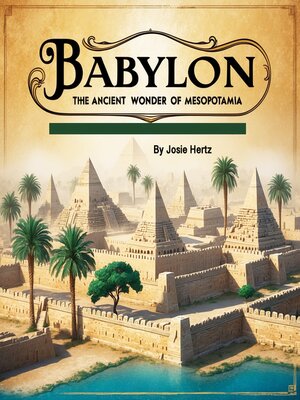
Sign up to save your library
With an OverDrive account, you can save your favorite libraries for at-a-glance information about availability. Find out more about OverDrive accounts.
Find this title in Libby, the library reading app by OverDrive.



Search for a digital library with this title
Title found at these libraries:
| Library Name | Distance |
|---|---|
| Loading... |
At its height, Babylon was more than a city; it was a symbol of human ingenuity. The Ishtar Gate, with its breathtaking blue-glazed tiles, and the fabled Hanging Gardens, one of the Seven Wonders of the Ancient World, serve as testaments to the extraordinary creativity of Babylonian society. Even in ruins, these remnants of the past whisper stories of grandeur, inspiring countless interpretations and sparking debates about their true origins and purpose.
Babylon also holds a unique place in the cultural and spiritual imagination. From its prominent role in Biblical narratives, where it is often portrayed as a city of decadence and divine judgment, to its depictions in ancient Greek and Roman accounts, Babylon has been both celebrated and vilified. These portrayals have shaped the way the world perceives the city, casting it as a complex emblem of both human achievement and moral caution.
Yet Babylon's significance extends beyond its monuments and stories. It was a hub of intellectual and scientific innovation, where scholars studied mathematics, astronomy, and law. The Code of Hammurabi, one of the earliest known legal systems, originated here, offering profound insights into the values and governance of ancient Mesopotamia. Its language, art, and traditions influenced neighboring civilizations and left an indelible mark on the trajectory of human development.







